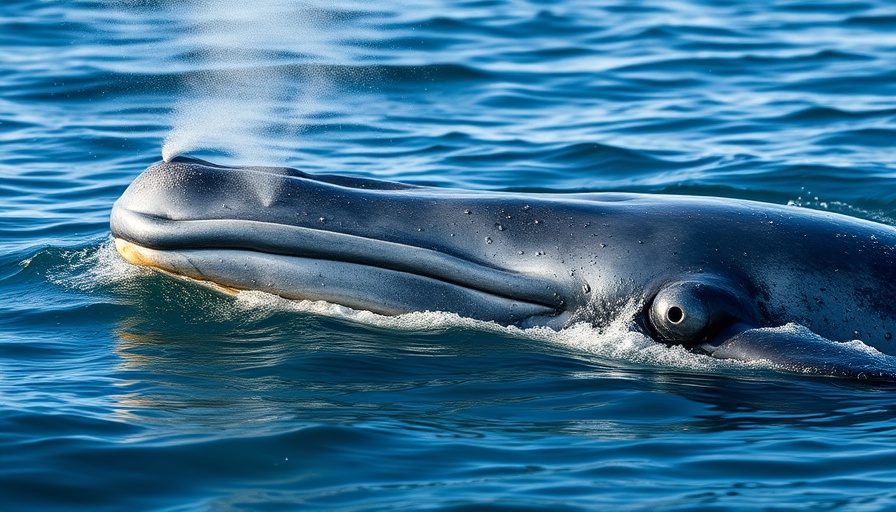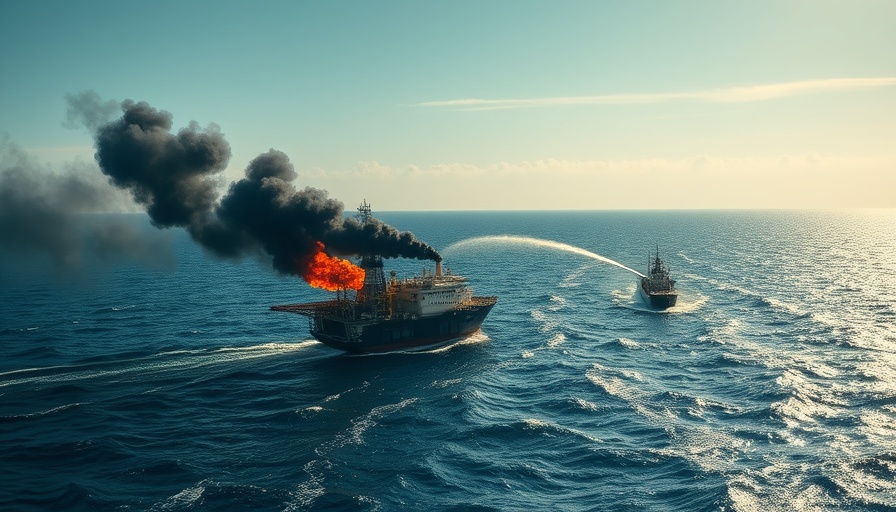
Understanding the Risks to Rice's Whales
The recent findings from the National Oceanic and Atmospheric Administration (NOAA) have shed light on the precarious plight of the endangered Rice's whale. With only a small population residing in the Gulf of Mexico, the risk of vessel strikes from oil and gas operations poses a serious threat. NOAA's 'biological opinion' asserts that without the implementation of specific technologies to avoid these collisions, the survival of the Rice's whale could be jeopardized over the coming decades.
The Controversy Over Oil and Gas Operations
This federal report has sparked significant controversy. Environmental advocates argue that the assessment underestimates the potential harm caused by oil spills and other environmental factors, while the oil and gas industry claims that the risks to the whale population have been overstated. This disagreement highlights a national conversation about balancing industrial operations with wildlife conservation, particularly in sensitive marine habitats.
Lessons from History: The Deepwater Horizon Incident
Fifteen years after the infamous Deepwater Horizon oil spill, the lingering effects on marine life remain a topic of discussion. The spill not only devastated local ecosystems but also had lasting impacts on the health of aquatic species, including dolphins and fish. The recent NOAA findings serve as a stark reminder of the need to learn from past mistakes and prioritize the protection of endangered species like the Rice's whale amidst ongoing industrial activities.
Future Predictions: Will Enough Be Done?
The current discourse raises pertinent questions about the future of the Rice's whale and other endangered species. Experts predict that if proactive measures are not adopted, the situation might deteriorate further, leading to a decline in marine biodiversity. It is imperative for industries to collaborate with conservation agencies to establish measures that can help mitigate risks.
Vessel Strike Mitigation: Actionable Insights
According to the NOAA report, implementing technology such as GPS tracking, surge alerts, and underwater acoustic monitoring can significantly reduce the risk of collision between boats and marine mammals. These actionable insights are essential for industry stakeholders who have the power to adopt practices that prioritize the well-being of endangered species while continuing their operations.
Community Connection: The Human Element
Local fishermen have voiced their concerns regarding the presence of Rice's whales, noting that sightings are becoming increasingly rare. These fishermen are witnesses to the intricate balance between economic activities and marine conservation, illustrating how vital it is for communities to advocate for environmentally sustainable practices.
Conclusion: Why You Should Care
The fate of the Rice's whale is a reflection of larger environmental challenges we face today. As members of the global community, our actions have far-reaching implications not just for marine wildlife but for broader ecological health. Understanding these connections is crucial as we advocate for sustainable practices and hold industries accountable to protect our oceans.
 Add Row
Add Row  Add
Add 




 Add Row
Add Row  Add
Add 

Write A Comment